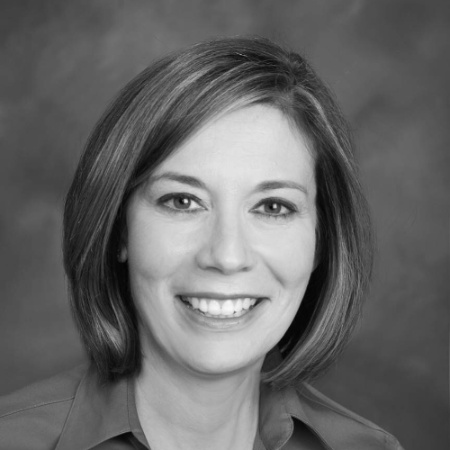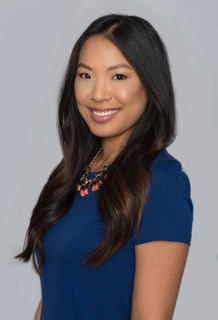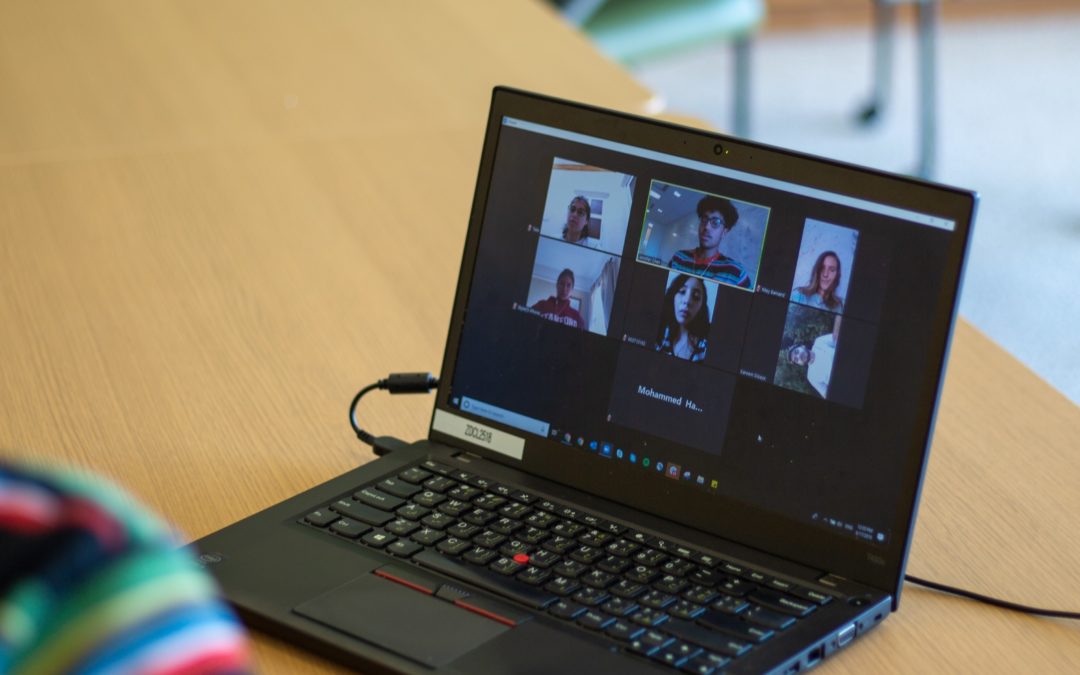By Carol Jenkins, World Learning and Christine Shiau, Stevens Initiative at the Aspen Institute
“There are some youth who have energy and want to make their community a better place, but they don’t know how.”
Areej of Iraq spoke these words after leading a two-month virtual exchange program called Leaders of Tomorrow that connects high school students online from Iraq, Mexico, and the United States to focus on conflict resolution and community action projects.
How much better off would our world be if we could harness the passion and potential of the world’s youth?
Through virtual exchange, children in New York City’s public schools have learned game design in lockstep with peers in Bahrain. Latino high school students in San Antonio have partnered with fellow students in Libya to create actionable pollution solutions for India’s Ganges River, and rural community college students have had worldview-expanding experiences getting to know peers in Iraq.
Virtual exchange is booming, thanks in part to the Stevens Initiative, founded in 2015 to honor U.S. Ambassador to Libya Christopher Stevens, who was killed in a raid in Benghazi a decade ago on September 11. Inspired by his lifelong passion for building bridges between the U.S. and the Middle East and North Africa, his family launched the Stevens Initiative in cooperation with the U.S. Department of State, the Aspen Institute, the Bezos Family Foundation, and the governments of Morocco and the UAE.
Through convenings, advocacy, research, and grant making to organizations such as World Learning, a nonprofit and educational institution, the Stevens Initiative has powered virtual education programs that will have reached some 75,000 young people in 17 MENA countries and 49 U.S. states by summer 2023.
Today, both technology and a strong cohort of international education partners have made virtual exchange not only possible, but a growing part of the global educational landscape. At a time when our country is seeking to eliminate disparities and create economic equity for all genders, physical abilities, and socioeconomic and ethnic backgrounds, institutionalizing virtual exchange across the educational system is a powerful way to level the playing field. Virtual exchanges should be a part of every student’s experience, whether in grade school, high school, university, or community college.
For young people living in remote or rural settings, or who don’t have the financial resources to travel, virtual exchange offers a door to global awareness and skill-building that can enhance college readiness, expand employment opportunities, and contribute to personal growth.
And as diverse populations have access to the skills taught in exchanges, they share that information in their communities and create a cascade effect in which people from underserved communities are given opportunities to create change.
Within World Learning’s program The Experiment Digital, for example, Malak A. of Egypt is leading the Climate Change Warriors Project, educating Egyptian youth about the impact of climate change. Participants are spreading awareness online, convening experts to discuss environmental sustainability, leading street clean-up campaigns, and organizing field trips to natural protectorates.
In Pittsburgh, PA, Sophia G. founded a platform for multiracial youth to connect with each other, discuss interracial matters and current social issues, and publish informational materials. Through virtual discussions and an in-person summit, Sophia and another alumna from The Experiment Digital hope to empower youth to affirm and explore multiracial identities.
Now is the perfect time to introduce your students to the possibilities of virtual exchange programs available to them after school and this summer. Encourage them to develop their skills, find their voice, and connect with their peers from around the world to discover the power they have to make a difference. In so doing, we’ll prepare all students for success not only as global citizens but as thought leaders and change makers too.
###
Carol Jenkins is the CEO of World Learning and Christine Shiau is Executive Director of the Stevens Initiative at the Aspen Institute.

Carol Jenkins
President and CEO, World Learning
Carol Jenkins is the CEO of World Learning Inc., which encompasses three distinct branches: The Experiment in International Living; School for International Training, which includes SIT Study Abroad and SIT Graduate Institute; and the nonprofit global development and exchange unit World Learning. Jenkins also serves as president of the global development and exchange division, where she oversees programs in more than 30 countries. Jenkins has served in multiple positions at World Learning over more than a decade. She first joined in June 2007 as senior director of international programs after a 16-year career in humanitarian aid and development. She spent seven years at the organization, including three years as head of its International Development and Exchange. In 2014, after nearly a year working on business and program development for World Vision in East Africa, Jenkins returned to World Learning. Under Jenkins’s leadership, World Learning’s development portfolio has seen revenue increase by 14 percent with continued anticipated growth. She oversaw the merger of World Learning’s three development and exchange offices into one location, leveraging the assets of more than 100 staff members. She was named CEO in February 2018. Prior to joining World Learning, Jenkins was director of program development for International Medical Corps, where she managed a team of technical business development professionals to improve the quality of field programs and expand the coverage to project recipients. She also previously spent 12 years working for World Vision, including a period during which she was posted in Southern Africa. Jenkins holds a bachelor’s degree in political science from Messiah College in Pennsylvania. She was a fellow at the Luskin School of Public Affairs at University of California, Los Angeles, in 2012 and a participant in the Leadership Program at the International Civil Society Center.

Christine Shiau
Executive Director, Stevens Initiative
Christine Shiau is Executive Director of the Stevens Initiative at the Aspen Institute. She drives vision and performance, leading strategy and program development, cultivating international and philanthropic partnerships, and ensuring effective management and oversight of the program. She blends strategic insight with creativity to establish virtual exchange as a cutting-edge field that builds global competencies and career readiness skills in youth and propels the internationalization of education. Christine sits on the board of the Alliance for International Exchange and AMP Global Youth. She joined the Initiative following a career in the public and private sectors. Christine graduated from the University of Illinois-Chicago with a B.S. in accounting and a minor in marketing. She received a Master of Business Administration from the University of Maryland.

